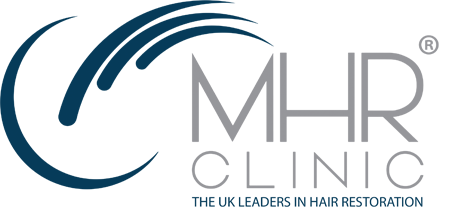The Importance of Vitamins for Hair Strength
Healthy, strong hair is often considered a sign of good health and vitality. However, maintaining hair strength and preventing hair loss can be challenging due to various factors such as genetics, environmental stressors, and dietary habits. One crucial element in achieving and maintaining strong hair is ensuring an adequate intake of essential vitamins. These vitamins play vital roles in promoting hair growth, strengthening hair follicles, and preventing hair damage. This blog explores the importance of vitamins for hair strength and how they contribute to overall hair health.
Understanding Hair Growth and Structure
Before delving into the specific vitamins that contribute to hair strength, it is essential to understand the basics of hair growth and structure. Hair is primarily composed of a protein called keratin, produced by hair follicles located in the skin’s dermal layer. Hair growth occurs in cycles, consisting of three phases: anagen (growth phase), catagen (transitional phase), and telogen (resting phase). Proper nutrition, including the intake of essential vitamins, supports these phases and promotes healthy hair growth.
Key Vitamins for Hair Strength
Vitamin A
Vitamin A is crucial for the growth and maintenance of cells and tissues, including hair. It helps in the production of sebum, an oily substance that moisturises the scalp and keeps hair healthy. A deficiency in vitamin A can lead to dry, brittle hair and a flaky scalp. However, it is essential to consume vitamin A in moderation, as excessive intake can lead to hair loss and other health issues.
Sources of Vitamin A:
- Carrots
- Sweet potatoes
- Spinach
- Kale
- Liver
- Eggs
B Vitamins
The B-vitamin complex includes several vitamins that play essential roles in maintaining hair health. These include:
- Biotin (Vitamin B7): Biotin is perhaps the most well-known vitamin for hair health. It supports the production of keratin, strengthens hair, and promotes growth. A biotin deficiency can lead to hair thinning and hair loss.
- Niacin (Vitamin B3): Niacin improves blood circulation to the scalp, ensuring that hair follicles receive adequate nutrients and oxygen. This helps in maintaining strong and healthy hair.
- Pantothenic Acid (Vitamin B5): Pantothenic acid helps strengthen hair follicles and prevent hair thinning and loss. It also aids in the production of coenzyme A, which is essential for hair growth.
Sources of B Vitamins:
- Whole grains
- Nuts and seeds
- Eggs
- Dairy products
- Meat
- Leafy green vegetables
Vitamin C
Vitamin C is a powerful antioxidant that protects hair follicles from oxidative stress caused by free radicals. It also plays a crucial role in collagen production, a protein that is an essential part of hair structure. Moreover, vitamin C aids in the absorption of iron, a mineral necessary for hair growth.
Sources of Vitamin C:
- Citrus fruits (oranges, lemons, grapefruits)
- Strawberries
- Bell peppers
- Broccoli
- Brussels sprouts
Vitamin D
Vitamin D is vital for hair follicle cycling. A deficiency in vitamin D has been linked to alopecia, a condition characterized by hair loss. Ensuring adequate levels of vitamin D can help maintain hair strength and prevent hair thinning.
Sources of Vitamin D:
- Sunlight exposure
- Fatty fish (salmon, mackerel)
- Fortified foods (milk, cereals)
- Egg yolks
- Mushrooms
Vitamin E
Vitamin E is another powerful antioxidant that helps protect hair from damage caused by free radicals. It supports a healthy scalp by improving blood circulation and providing moisture to the hair follicles, thus promoting strong and healthy hair.
Sources of Vitamin E:
- Nuts and seeds (almonds, sunflower seeds)
- Spinach
- Avocado
- Olive oil
- Broccoli
Integrating Vitamins into Your Diet
To ensure strong and healthy hair, it is crucial to incorporate a balanced diet rich in these essential vitamins. Here are some practical tips for integrating these vitamins into your daily meals:
- Eat a Variety of Foods: Include a diverse range of fruits, vegetables, lean proteins, and whole grains in your diet to cover the spectrum of essential vitamins and minerals.
- Opt for Whole Foods: Whole foods are often richer in vitamins and nutrients compared to processed foods. Focus on natural, unprocessed foods for better hair health.
- Consider Supplements: If you struggle to obtain sufficient vitamins through diet alone, consider taking supplements. However, it is important to consult with a healthcare professional before starting any supplementation regimen.
- Stay Hydrated: Drinking plenty of water is crucial for overall health, including hair health. Proper hydration helps transport essential nutrients to hair follicles.
Lifestyle Factors Affecting Hair Strength
In addition to a vitamin-rich diet, other lifestyle factors can significantly impact hair strength and overall health:
- Stress Management: Chronic stress can lead to hair loss and weaken hair follicles. Practicing stress management techniques such as yoga, meditation, and regular exercise can improve hair health.
- Avoiding Heat and Chemical Damage: Excessive use of heat styling tools and chemical treatments can damage hair and weaken its structure. Limiting these practices and using protective products can help maintain hair strength.
- Regular Scalp Care: Maintaining a clean and healthy scalp is crucial for strong hair. Regular washing, gentle scalp massages, and avoiding harsh hair products can promote a healthy scalp environment.
- Adequate Sleep: Quality sleep is essential for overall health and well-being, including hair health. Ensure you get enough sleep to support the body’s natural repair processes.
Conclusion
Vitamins play a fundamental role in maintaining hair strength and overall hair health. By ensuring an adequate intake of essential vitamins such as A, B-complex, C, D, and E through a balanced diet, you can promote healthy hair growth, strengthen hair follicles, and prevent hair damage. Coupled with a healthy lifestyle and proper hair care practices, these vitamins can help you achieve strong, vibrant hair. Remember, healthy hair is a reflection of your overall well-being, so prioritise a nutrient-rich diet and take care of your body to enjoy the benefits of strong and beautiful hair.
